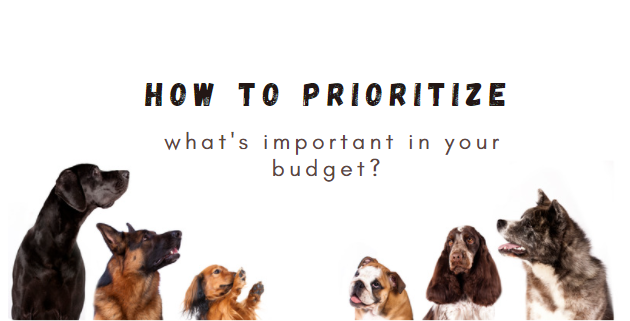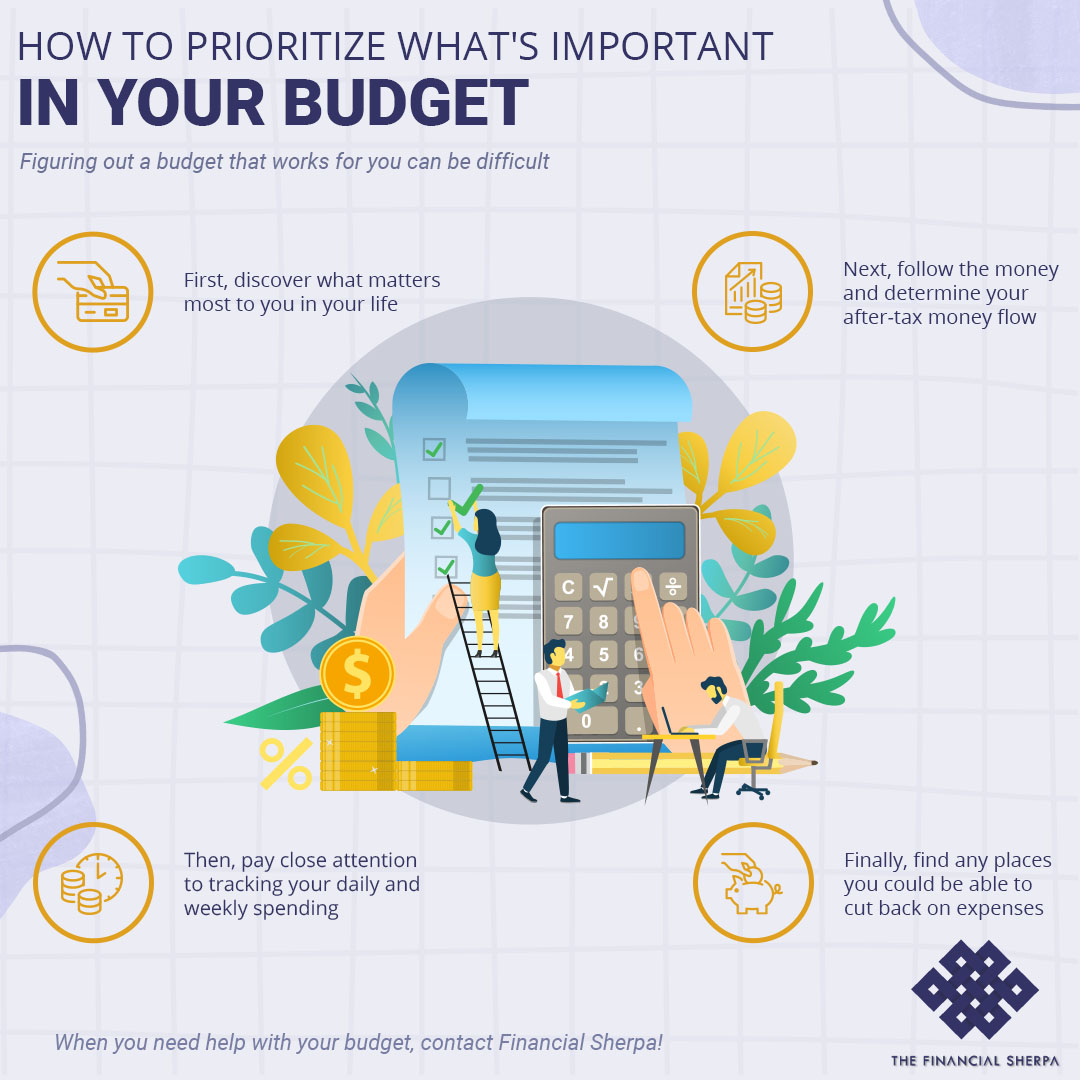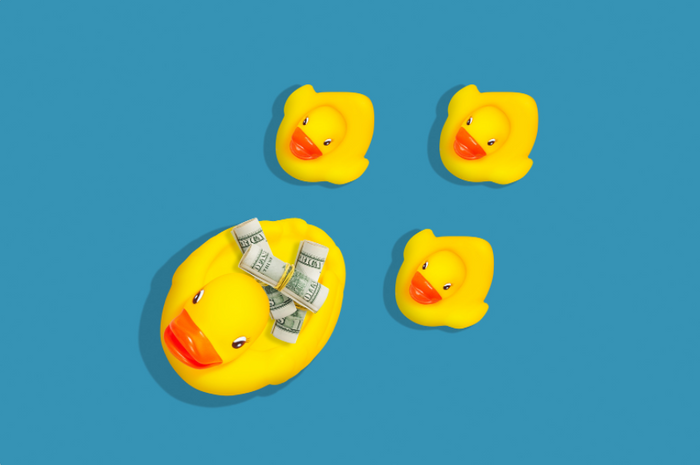Following a budget is essential to financial health, but it’s challenging for many people to create one and stick to it. Learn how to prioritize your spending when creating a budget and how to adapt expert advice to your financial goals.

How to prioritize what's important in your budget?

Why Budget?

Whether you’re working towards business, fitness, or financial goals, what matters most is creating a solid plan to get there. When it comes to meeting financial goals, a budget is one of the first building blocks of a sound financial plan.
A budget shows how much income you’re bringing in and how much you plan to spend on different expenses. While you might not have much control over the inflow—household income—you can control the cash flowing out. Create a budget by recording, monitoring, and prioritizing your spending categories.
Ultimately, this will help you make financial decisions today that will help you meet tomorrow’s financial goals.
How Do I Budget?
What Matters Most?

When prioritizing spending goals, many families work towards building savings while paying off debt.
First, build your emergency fund. This should include at least three months of essential living expenses.
Second, pay off unsecured debt such as credit card balances and unsecured credit lines. There are several different techniques for paying off debt, but the most efficient method is to pay the debt with the highest interest rates first, continuing until you’ve reached the debt with the lowest interest rate.
It’s also important to set aside money for other goals, like saving for your children’s education and retirement. A vacation, home renovation, or a new vehicle are also important goals for many people.
Your financial advisor can help you to prioritize these goals based on your current financial situation, age, and other factors.
Wondering where to find the money to build savings and pay off debt? Begin by tracking your spending.
Follow the Money

Once you’re ready to create a budget, begin by determining how much after-tax money flows in and out of your household. This gives you an overview of how well you’re meeting your fixed and variable expenses, and how much money you could earmark for your financial goals.
While recording your after-tax income from earnings, investments, or other income is simple, recording your cash outflows is more complicated.
You might have the best intentions to stick to a budget, but where does your money ACTUALLY go?
For at least one week, track your spending using either a spending tracker app or old-fashioned paper and pencil. Identify the spending categories for every dollar flowing out of your accounts. This will show you when and where your spending occurs.
Are there any surprises? Where could you cut back on expenses?
Identify areas where you overspent, as well as opportunities to cut costs. If you’re unable to trim expenses to a satisfactory level, try balancing your budget by increasing your income. Could you generate a few dollars with a side hustle or gig-work?
Building a personalized household budget, prioritizing your spending categories, and crafting an actionable financial plan to help you meet your goals can put you on the road to financial success.
If you have questions, financial professionals are available to answer them and help you get started !
